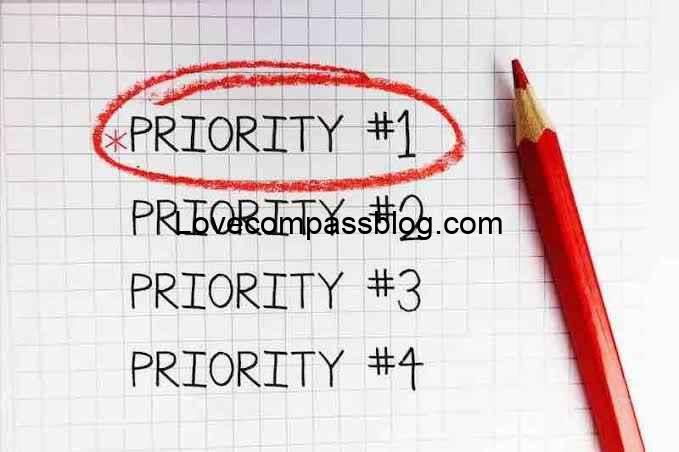Balancing Career Ambitions with Relationship Goals

Balancing career and relationship goals means actively managing the demands of your professional life while nurturing a fulfilling and healthy relationship. This isn’t about compromising one for the other but finding an equilibrium where both aspects complement each other. Career and relationship balance ensures that you don’t sacrifice personal happiness for professional success, nor do you forgo your career aspirations for the sake of a relationship.
The main challenge lies in preventing one area from overwhelming the other, which could lead to stress, burnout, or relationship dissatisfaction. When properly managed, achieving a balance between personal life and professional ambitions leads to greater life satisfaction and emotional stability. Individuals who succeed in balancing these aspects often report being happier, more fulfilled, and having healthier relationships.
Why Balancing Career and Relationship Goals is Crucial

Career-driven individuals often face challenges when it comes to relationships, particularly with managing work-family conflict. Balancing both personal and professional life requires intentional strategies to ensure both aspects thrive. Prioritizing your relationship without losing sight of career goals is essential for long-term happiness. Studies show that individuals who successfully balance their relationships and career experience lower levels of stress and greater emotional resilience.
Moreover, career sacrifices for relationships may lead to feelings of resentment if not addressed, making it necessary to establish a clear understanding of how each partner’s professional and personal goals can coexist. Ultimately, achieving balance allows for growth in both areas, creating a more fulfilled life where neither career nor love feels like a burden.
Setting Priorities: Personal vs. Professional Life

Time Allocation in Relationships
In relationships, time is one of the most precious commodities. Both partners must find a way to balance personal time with professional obligations. To ensure neither aspect is neglected, you need to make conscious decisions about time allocation. Setting relationship priorities requires planning and actively scheduling time for each other while managing work-related tasks. For instance, couples can maintain balance by reserving weekends or specific evenings for quality time together, which strengthens their emotional connection.
Maintaining balance doesn’t necessarily mean equal time but ensuring that your partner feels valued and appreciated despite professional demands. Couples who succeed in this aspect often implement strategies to set work-life boundaries that prevent one area from encroaching on the other.
Mutual Support in Balancing Work and Love
Supporting each other’s ambitions is crucial in balancing career and relationship goals. Partners who offer mutual support help each other grow personally and professionally. This can take many forms, such as discussing career decisions together, celebrating successes, and providing emotional support during stressful periods.
It’s essential that both partners understand the importance of career and relationship success, meaning that neither person’s professional or personal life is seen as more valuable. The key lies in compromising between work and relationship aspirations—acknowledging each other’s career goals and offering support, whether that means helping with daily responsibilities or simply being emotionally available.
Knowing Your Limits: Healthy Boundaries in Relationships
Boundaries are fundamental to maintaining both personal and professional well-being. Establishing healthy boundaries in relationships allows you to prevent your career from dominating your personal life and vice versa. Couples should create a relationship boundaries list that outlines what is acceptable and what is not. This could involve limiting work discussions at home, respecting personal time, or agreeing on how much time to devote to work after hours.
Respecting personal limits ensures that both partners can recharge without feeling overwhelmed. For example, if one partner works long hours during the week, setting aside weekends for personal time can prevent burnout and ensure a balanced relationship. Respect for boundaries ultimately enhances the quality of both your work and your relationship.
Practical Strategies for Maintaining Balance

Communication as the Foundation
Open, honest communication is the cornerstone of successfully balancing career and relationship goals. Clear communication helps to set expectations and avoid misunderstandings that can lead to conflict. Discussing career expectations and personal needs is essential to prevent feelings of neglect or resentment.
Effective communication means regularly checking in with each other, especially when work commitments change or stress levels rise. It’s important to ensure that both partners feel heard and understood when addressing how to balance these aspects of life. Making decisions as a couple—such as where to live, how to handle promotions, or managing relocation due to career—will help maintain harmony in the relationship.
Managing Household Chores and Responsibilities
One of the most practical strategies to balance career and relationships is to share household responsibilities. Dividing household chores equitably reduces stress and prevents one partner from feeling overwhelmed, especially when both are pursuing demanding careers. When couples work together to manage domestic duties, they free up more time to spend together and improve the overall relationship dynamic.
Couples who successfully balance their relationship and career often implement a household management system where tasks like cooking, cleaning, and other chores are split based on availability, skill, or preference. For instance, one partner may take on more responsibilities during periods of heavy work commitments for the other, ensuring that neither person feels overburdened.
Scheduling Quality Time
Amidst the hustle and bustle of daily life, making your relationship a priority is essential. Scheduling regular date nights for busy couples helps maintain the romantic aspect of the relationship, even when work demands are high. Allocating time for activities that both partners enjoy ensures that the relationship stays fresh and connected.
These activities don’t have to be elaborate; even simple gestures, such as a weekend hike, cooking together, or watching a movie, can create valuable quality time. Consistency in spending time together, no matter how small, strengthens emotional bonds and helps couples navigate the challenges of balancing work and love.
Supporting Each Other’s Career Growth
Offering unconditional support for your partner’s career aspirations is crucial for maintaining balance. Whether this means celebrating their successes, offering a listening ear during stressful times, or providing constructive feedback, your support is vital. Partners who thrive together often foster a strong sense of career relationship success, where each person feels supported in their ambitions.
Being a cheerleader for your partner’s career while also pursuing your own shows that you value both the relationship and professional growth. Moreover, when one partner is facing challenges at work, offering emotional support can ease stress and foster deeper trust.
Challenges in Balancing Career and Relationships

Managing Long-Distance Relationships
Long-distance relationships present unique challenges, especially when career goals require relocation or frequent travel. Successfully balancing long-distance careers and relationships involves setting clear expectations, maintaining consistent communication, and scheduling regular in-person visits. Relationship stability with demanding careers can be sustained by understanding each other’s goals and finding ways to stay connected.
For instance, using technology to stay in touch, sharing experiences despite the distance, and making future plans together can help bridge the gap. Balancing work and personal life in a long-distance scenario requires extra effort but can be managed with careful planning and mutual understanding.
Work Stress and Its Impact on Relationships
Work-related stress can significantly impact a relationship if not managed properly. High career pressure can lead to emotional detachment, irritability, and even resentment toward your partner. Managing work stress and relationship strain involves adopting healthy coping mechanisms, such as stress-relief activities, meditation, and regular physical exercise.
Moreover, creating an environment where work problems are discussed openly but without overshadowing personal time helps reduce stress and prevents it from affecting the relationship. Balancing career and relationship expectations is essential when one or both partners are experiencing professional challenges.
Setting Relationship and Career Goals Together

Setting Boundaries and Limits
Clear boundaries between work and personal life are essential for managing expectations. Establishing work hours, prioritizing personal time, and ensuring that work tasks don’t intrude on your relationship will help preserve balance. For example, couples can agree on no-work zones, such as not discussing professional issues during dinner or after a certain time in the evening. Knowing when to turn off the work mode and switch to personal time can prevent burnout and relationship fatigue.
Defining Joint Goals as a Couple
Couples who define and pursue joint goals often find it easier to balance career and relationship ambitions. Whether it’s buying a home, starting a family, or planning career moves together, aligning your goals ensures that both partners feel like they are working toward shared objectives.
Discussing these goals helps avoid misunderstandings about each other’s priorities and fosters a sense of unity. When both partners have a clear vision of what they want to achieve together, it becomes easier to support one another through the challenges of career advancement and personal growth.
Prioritizing Your Relationship
Making your relationship a priority means choosing the right partner who shares similar values when it comes to balancing work and personal life. Prioritizing your relationship requires active effort, such as making time for each other, showing appreciation, and being present even during busy periods.
Partners who treat their relationship as a key part of their life, rather than an afterthought, often experience more fulfilling connections. This involves scheduling time, creating rituals, and making sure that despite the demands of work, your partner always feels valued.
Financial and Career Decisions: Working Together

Discussing Finances Openly
Financial disagreements are one of the most common sources of stress in relationships. Talking about finances openly helps ensure that both partners are aligned when it comes to budgeting, savings, and spending priorities. Discussing career-related financial decisions, such as salary expectations, career moves, or changes in job status, helps prevent misunderstandings and financial strain.
Having regular financial discussions allows both partners to contribute equally to the decision-making process, which enhances trust and understanding. For example, if one partner is considering a career change that may involve a temporary reduction in income, having an open conversation ensures that both partners are prepared and on the same page.
Making Career and Financial Decisions Together
Making career and financial decisions together creates a sense of partnership and shared responsibility. Decisions such as relocating for a new job, investing in career development, or choosing to save for major life goals (like buying a home or starting a family) should be discussed openly and honestly. Couples who are proactive in aligning their financial and career goals tend to feel more secure and united in their relationship.
For example, if one partner is considering pursuing further education or a major career shift, both should evaluate how this decision will impact their finances and lifestyle. Collaboratively planning for these changes ensures that neither person feels left behind or blindsided by unexpected career moves.
Balancing Career and Relationships: Common FAQs
Can You Balance a Relationship and Career at the Same Time?
Yes, balancing both is possible, but it requires intention, effort, and good communication. It’s important to regularly reassess your priorities to ensure both your career and your relationship receive adequate attention. Finding creative ways to combine the two, such as working remotely or managing flexible schedules, can help.
Can Love and Career Go Together?
Absolutely. With proper communication, setting priorities, and maintaining boundaries, love and career can go hand-in-hand. Couples who support each other’s career goals while also fostering their relationship create a dynamic that allows both partners to thrive.
What’s More Important: Love or Career?
This depends on individual values and life circumstances. Some people prioritize their careers because of personal ambition or financial goals, while others place more importance on their relationships. The key is to strike a balance where neither is neglected and both are given the respect and attention they deserve.
How Do You Maintain a Relationship and Career?
Maintaining a relationship and career involves setting clear boundaries, communicating openly, dividing responsibilities, and scheduling time for both personal and professional commitments. Developing time management strategies that allow for both career growth and personal connection is essential. Couples should continuously check in with each other to ensure neither aspect is suffering.
Final Thoughts
Balancing career ambitions with relationship goals is an ongoing process that requires effort, understanding, and flexibility. By prioritizing communication, setting clear boundaries, sharing responsibilities, and supporting each other’s goals, couples can successfully manage the demands of both work and love. It’s not about choosing one over the other but learning to nurture both aspects in harmony.
Now that you know how to balance both, it’s time to implement these strategies and foster a successful career while maintaining a loving, supportive relationship. By making small, consistent efforts, you’ll find that your personal and professional lives can thrive together.




